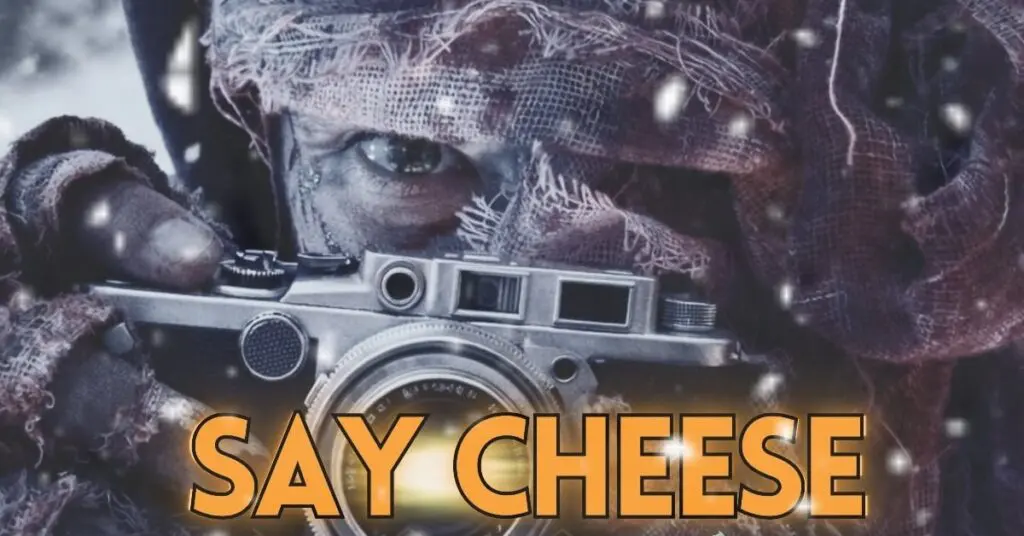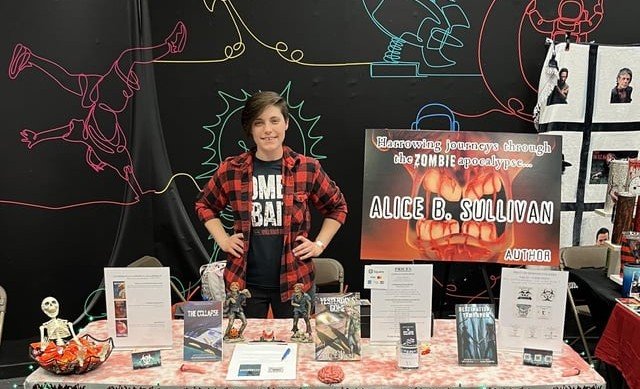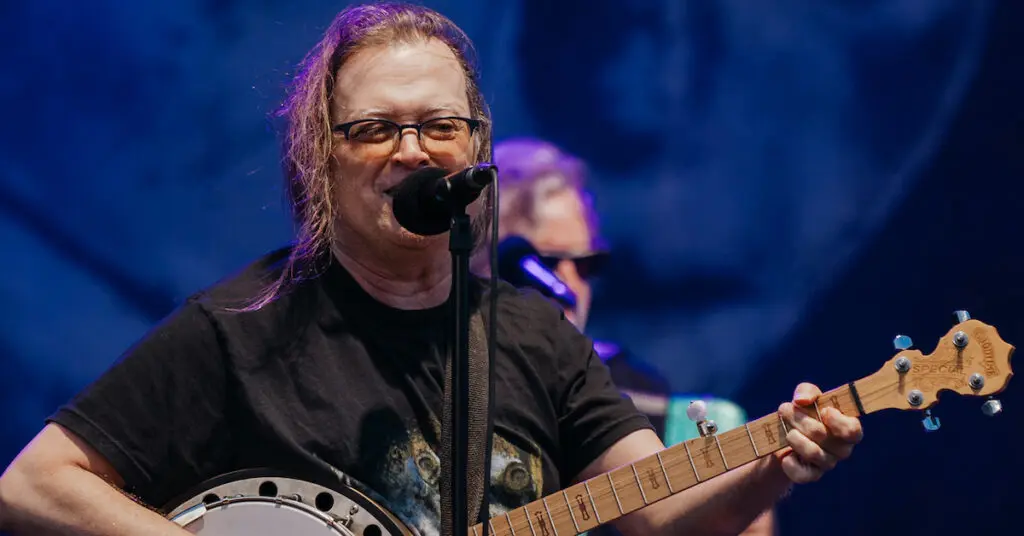John Holmstrom – An Xperience Interview
By Staff on September 2, 2024
John Holmstrom – An Xperience Interview – by Liam Sweeny.
RRX: Punk. You were the founding editor, and it ran for three years, not counting specials and relaunches. It was influential beyond its time. So I’m thinking there was a degree of the experience maybe aging you a little. Did you come off the mountain in ’79 with white hair and tablets? Did it change you, or was it three racy miles on life’s cross-country highway?
JH: Oh yeah, did it ever! Lou Reed said on “Metal Machine Music”: “My week beats your year.” Back then? My week beat almost anyone’s year. Those three to four years were packed with action, comedy, tragedy, and insanity. You know, I went from being homeless in January 1976 to running the most important music publication in the world one year later. It was a constant roller coaster. By the time the magazine went under for the last time in 1979, I was beaten down. It was like “The Old Man and the Sea,” where the guy makes the catch of a lifetime, but by the time he sails home, the sharks devoured it.
RRX: The New York scene in the ‘70s is celebrated to this day. We definitely find a spiritual center with what Punk was doing. But we have our own scene here, and I wonder how one lucky twist could make the Albany scene celebrated fifty years from now. Did you feel the pressure of a looming posterity back then, or just the love of a local scene?
JH: There was always this weird feeling around the CBGB scene back in the day that we were involved in a scene that would become important someday, and that it would be like early 1960s Swinging London or the San Francisco psychedelic scene. Bands we liked in 1975 and 1976 suddenly started getting signed to recording deals and attracted larger and larger audiences. And the media was swarming the club in 1976: TV crews were shooting bands, the music press and even a few mainstream outlets sent reporters to cover this “new punk rock scene.” Reporters were constantly asking me: “What is punk rock?”
A lot of media people who came of age during the hippie counterculture were bored with the cultural stagnation taking place in the mid-1970s and loved the idea that we were troublemaking, having fun, and starting a new scene! But although we generated a lot of press in 1976, it paled in comparison to the London punk rock scene a year later. That became a mainstream phenomenon! Which is why so many people back then thought “the punk rock movement” was created in England.
Since there hasn’t been a significant rock music scene since the grunge thing in Seattle in the 1990s, I doubt that Albany (or any city) can develop another important scene. But you never know, right? You gotta keep trying. It’s like Albert Camus’ “The Myth of Sisyphus”: The glory is in the struggle, and the attempt to put that boulder over the mountain, not the outcome.
RRX: You’re a cartoonist. A great cartoonist. Your work is all over, and in my case, on my coffee table when I was a kid (High Times). I always liked the fact that cartoonists can pretty much get away with whatever they want. Is that really true, though? Are there bounds? If so, how do you draw your way around them?
JH: Thanks so much for the compliment! Being a lowbrow art form that many people look down on, cartooning is definitely something that gets away with a lot of stuff. Like, that kid who noticed that the Emperor wasn’t wearing any clothes and said it out loud was probably a cartoonist. A good cartoonist doesn’t give a shit if you don’t like their artwork and will draw the ugliest caricature of you that anyone ever saw… And if you can’t take a joke? Fuck off.
But good humor always draws from the truth, so a good cartoonist is always trying to read between the lines and figure out what’s really going on. Which can get us in a lot of trouble, since you don’t get censored when you lie—you end up in prison for telling the truth.
Back in the 1970s, we had publications like National Lampoon, Screw, Hustler, underground comic books, and so many publications all pushing boundaries and trying to be more outrageous and provocative, which was another key to our popularity. The scene back then wasn’t at all like today, where people try so hard to NOT be offensive that it becomes offensive with cancel culture and the stifling of free expression. Political correctness is the death of true art, as anyone who studies history can tell you.
It’s a shame that comedy and humor are dying at this time, since everyone needs a good laugh. A hundred years ago comedy was king: movie stars like the Marx Brothers, Buster Keaton, Harold Lloyd, Charlie Chaplin, etc.; wonderful newspaper comic strips and movie cartoons like Felix the Cat and Koko the Clown… America’s ability to laugh during hard times was a huge part of our national character.
RRX: So punk has evolved to have a much wider acceptance and a bit of gatekeeping. There’s a meme that Avril Lavigne started punk in 2000 with “Sk8r Boi.” Obviously funny, but there are kids that think punk started with Green Day. I will ask you this: throughout the years, decades, of every shade of what is called punk, what’s the current that runs through it all?
JH: Well, I have a theory on all this. Punk was an essential part of rock ’n’ roll. In the 1950s, rock and rollers like Elvis, Little Richard, Jerry Lee Lewis, Link Wray, etc. inspired rebellious teenagers. It was dangerous and unpredictable. By the time the late 1960s were changing rock ’n’ roll into “progressive” or “classic” rock, it lost the rebellious edge that the British Invasion and US garage rock bands revived. Simon and Garfunkel, Carole King, Madonna, and so many others are not rock ’n’ roll in my opinion, and do not belong in the Rock and Roll Hall of Fame—they should just change the name to the Pop Music Hall of Fame. Words need to have a meaning or else our language becomes gibberish.
So, I (and many others) in the early 1970s picked up on the concept that bands like the Stooges, MC5, Alice Cooper, and the New York Dolls were punk! These bands were also labeled “shock rock,” but they had that “punk attitude.” And sadly, a lot of the West Coast “pop punk” bands like Green Day and Avril Lavigne don’t have a lot of that attitude. They play it safe, which is probably why they’ve become successful. Real punks are screw-ups and losers. We’re self-destructive and do crazy stuff! We take irrational risks in the name of our chosen art form and pay the price for making mistakes. We do not play it safe!
Anyhow, my theory is that whatever the rock critics tag as “proto-punk” should be renamed “punk rock ’n’ roll.” After all, punk is just an essential element to rock ’n’ roll culture: the need to feel free, to be independent, to have fun and celebrate life! Punk rock ’n’ roll unites 1950s rock and roll music, 1960s garage rock, 1970s punk rock, 1970s hair metal (and a lot of heavy metal), 1990s grunge, and on and on into eternity. “PUNK IS FOREVER!”
RRX: Right now, we are in a new age of platforms. It is weird to think that one of our biggest draws is that we actually put something out on paper. Everybody is media now. Everybody is a journalist covering their own lives. How do we survive in “formal” media? How do we offer what an influencer on Instagram or a TikTok challenge can’t?
JH: I’ve seen an amazing increase in the appeal and popularity of print media lately, and I discuss this with young kids all the time. They get it. The limits of digital technology are becoming apparent: digital decay, the short lives of many websites, and all the scams on the internet are encouraging people to use other forms of expression. Yeah, social media is necessary for promoting your work (and that’s hitting a saturation point—too many people pushing stuff and not enough people who respond or react.)
When I look back and think how I produced PUNK magazine almost 50 years ago, and the content is still available for viewing and enjoying, and if I take good care of it—it still looks like new? Hey, this gives print media an edge over content posted on the Internet. You know how Instagram hosts these “reels” on their platform that only last 24 hours? WTF? Meanwhile, stuff I did 50 years ago is still a thing. And how many websites last for 50 years? And how much would it cost to host that content over a 50-year period? (Unless you use a website like Facebook or Instagram that claims copyright on the material!) The permanence of print is becoming an attractive element for creative people beginning their careers…
The print medium has been around for over 500 years. Clay tablets? Thousands of years. If you want to preserve your work for future generations, what platform or medium will you want to use? A lot of people are turning to print since the Internet is failing on many levels. Who knows, maybe we will return to clay tablets at this rate?
RRX: Another modern kink in the armor of all that is good and holy is artificial intelligence. I’m talking about generative AI like ChatGPT-4, Midjourney, and Stable Diffusion. Also music AI. Pretend you’re the one tasked to speak for humanity. How would that go? Are you more John Connor or more T-1000?
JH: John Connor, for sure. Looking back, and rereading my “Death to Discoshit” editorial in PUNK #1 (which was just one more thing in that issue that touched a lot of nerves), I realized that my objections to that music mostly had to do with hating the lack of soul in that music. There was a growing use of synthesizers in music in the early 1970s, and disco was this new music where the producers used computers instead of humans to make the “music.”
The band Chic would be a great example. I like a lot of their music, like “Good Times,” which became the music track that put hip-hop on the map after the Sugar Hill Gang used that song for rap music’s first hit record. Even though it sounds like guitar, bass, and drums I believe they used a lot of synthesizers on the record, and on most disco music. And that was why so many rock ’n’ roll fans hated disco. We weren’t racists, homophobes, or anti-human—we were, in fact, pro-human and against computerized robots taking over our culture!
So the fight to keep our culture human (music, art, and performance) is essential. We have to fight the robot revolution. I keep telling people: do not buy from Amazon! Support your local small businesses. Support people and not huge, global corporations! Don’t go to EDM raves, where they play mindless, anti-human zombie music! Support your local band scene. Hang out with human musicians—do not pay money to hang out in a club where they play digital crap!
RRX: This is where you answer the questions I didn’t ask. Remarks? Comments? Educate, enlighten, emote – the floor is yours.
JH: I just want to promote the fact that PUNK Magazine is celebrating our 50th Anniversary in late 2025/early 2026. To me, when we went to CBGB and interviewed the Ramones, and then Danny Fields said that Lou Reed was there and would I like to interview him? That was the moment the punk rock movement began. Yeah, a bunch of bands were making the music, but when the first issue of PUNK came out? We defined it. I always say that Lou Reed’s “Metal Machine Music” album kicked off the movement. It was a double album of guitar feedback and tape hisses, unlistenable for most people. Brilliantly, Lou had Side Four loop, so the track time was Infinity! This was such a “Fuck You!” statement! He put out the album to get out of his contract with his managers, who sued Lou, and I am proud to say that our coverage of the album helped Lou win the lawsuit.
Getting Lou Reed on the cover of our first issue, at the exact time that he was being called a “washed-up has-been” after MMM bombed big time, definitely put PUNK magazine on the map. And our heralding of the Ramones as the New York City punk rock band that mattered, the “Death to Disco” editorial, and the article calling Marlon Brando “The Original Punk” for his role in “The Wild One” all contributed to our initial success. We defined punk rock in a way no one else had: visually and literally. Our later issues featuring Patti Smith, Iggy Pop, Richard Hell, the Sex Pistols, Blondie, and the Talking Heads created the blueprint for later punk fanzines to follow.
PUNK magazine wasn’t perfect. We made a lot of mistakes. We screwed up big time. But the whole world hated us back then, and it wasn’t easy to succeed when the world loved disco music. Like H. L. Mencken wrote: “No one ever went broke under-estimating the intelligence of the American people”… So yeah, I went broke. And I’m back for more!





 RadioRadioX
RadioRadioX